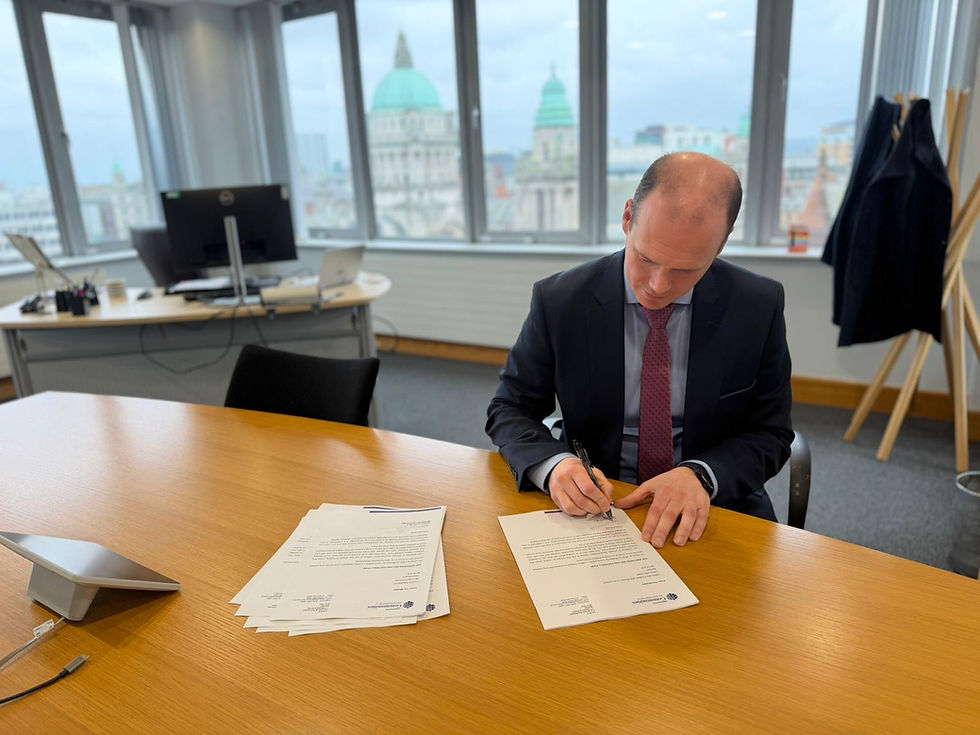ANBCouncil set to continue period poverty initiative in community
- Michelle Weir (Local Democracy Reporter)

- May 8, 2023
- 2 min read

A period poverty initiative is set to continue in Antrim and Newtownabbey after funding of £3,000 was approved at a meeting of the borough council’s Community Planning Committee last week.
Councillors agreed to provide a supply of free “biodegradable, environmentally-friendly disposable” sanitary products at community facilities and Neighbourhood Renewal Partnerships during this financial year.
A report to the council’s Community Planning Committee indicated an uptake of approximately 8,000 “biodegradable and environmentally-friendly” free sanitary products at 11 community facilities since the scheme commenced at an average of 1,000 per month.
Sixty-five reusable packs were distributed to five community organisations.
Councillors heard previously: “Period poverty is a significant issue impacting women and girls in the borough who are experiencing a lack of access to sanitary products as a result of income disadvantage.”
Almost 10 per cent of pupils in Northern Ireland have missed school “many times” because they had no period products, according to a survey carried out by exams body CCEA.
Commenting at the meeting, Glengormley SDLP Councillor Noreen McClelland said: “A lot of work has gone into this. It is a very necessary facility. I am very happy that we accept the recommendation.”
In February, the council hosted a best practice visit to the borough’s period poverty initiative.
The Period Products (Free Provision) Act (Northern Ireland) 2022 will require all public service bodies must ensure that period products are obtainable, free of charge within their premises.
In September 2021, a three-year scheme to make sanitary products freely available in schools was launched.
It aims to “aims to promote period dignity and tackle period poverty, helping pupils to reach their potential, by promoting confident attendance at school, primarily through the provision of free period products”.
Antrim and Newtownabbey Borough Council has provided period products free of charge in leisure centres and council-owned community buildings during a previous 12-month project at a cost of £3,500.








